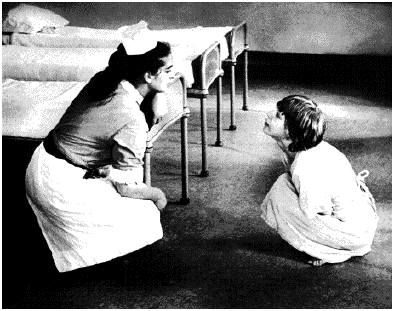Kate Jennings
(Fourth Estate)

The counterpoint is her marriage --- or what used to be her marriage. Her husband Bailey has Alzheimer's, and she watches him, and we watch her watching him, going from being a good cook, an artist, a great companion --- to a bed-wetting, out-of-his-mind, don't-know- It's an interesting idea, and I wish I could say that it works. Like, say, the aria for tenor and oboe d'amore in "Du Hirte Israel, Höre" BWV #104. But, sadly, the two parts just don't mesh.
At one point she says of her job that, after the meltdown of the Russian ruble, the Federal Reserve acted "as if afflicted with Alzheimer's ... [and] remains adamant that banks can police themselves." She also writes that "navigating the bureaucracy" of the nursing home where she finally puts Bailey "required the same skills I was honing at Niedecker." But the two stories don't come together so simply. I believe Ms. Jennings is trying to put too many eggs in one basket.
Furthermore, the author's scorn for investment banks and bankers is so fearsome that she (that is, the hero Cath) indulges in a great deal of finger-waggling, especially when she gets on the subject of corporations, The United States is a democracy, and yet it's powered by autocratic corporations. Its engines are fascist. Nothing democratic about them. This all well may be true, but the form of a novel requires that we be shown it, not have it mushed in our faces.
The woeful story of Bailey comes across as much more believable. We watch him fall apart and --- because of what caring for him demands --- watch her fall apart too. We see Bailey forgetting; Bailey pretending he is not forgetting; Bailey "forgetting to remember." And one chapter, 21, all by itself, 200 words or so, which tells us: Looking over what I've written about Bailey in the nursing home, I realize I'm giving you the pathos of the situation, not the awfulness ... I want you to think of Bailey as sweet, as straining with all his being to keep his dignity, to stay true to his personality. Yet, as the illness advanced and his medications became less effective, there were days when he seemed to say, in effect, screw sweetness, screw dignity ... Days when he was barbarous, his room bedlam. Days when we shut the door and allowed him to remain filthy, unfed ... Days when he inhabited a dim cave where the regrets, frustrations, and sadnesses from his life flew in skirling circles, clicking and squeaking, brushing their wings against him. Ms. Jennings is good when she is giving us the technicalities of derivatives, letting us know of their dangers (and the danger of the greed that perpetuates them). She is not so good when she's preaching at us. But she's great when she is giving us the day-to-day horror of living with one who is reverting to the Terrible Twos. Let us hope that on her next writing excursion, she will forget counterpoint and write a simple direct narrative on some story out of her not so everyday life.